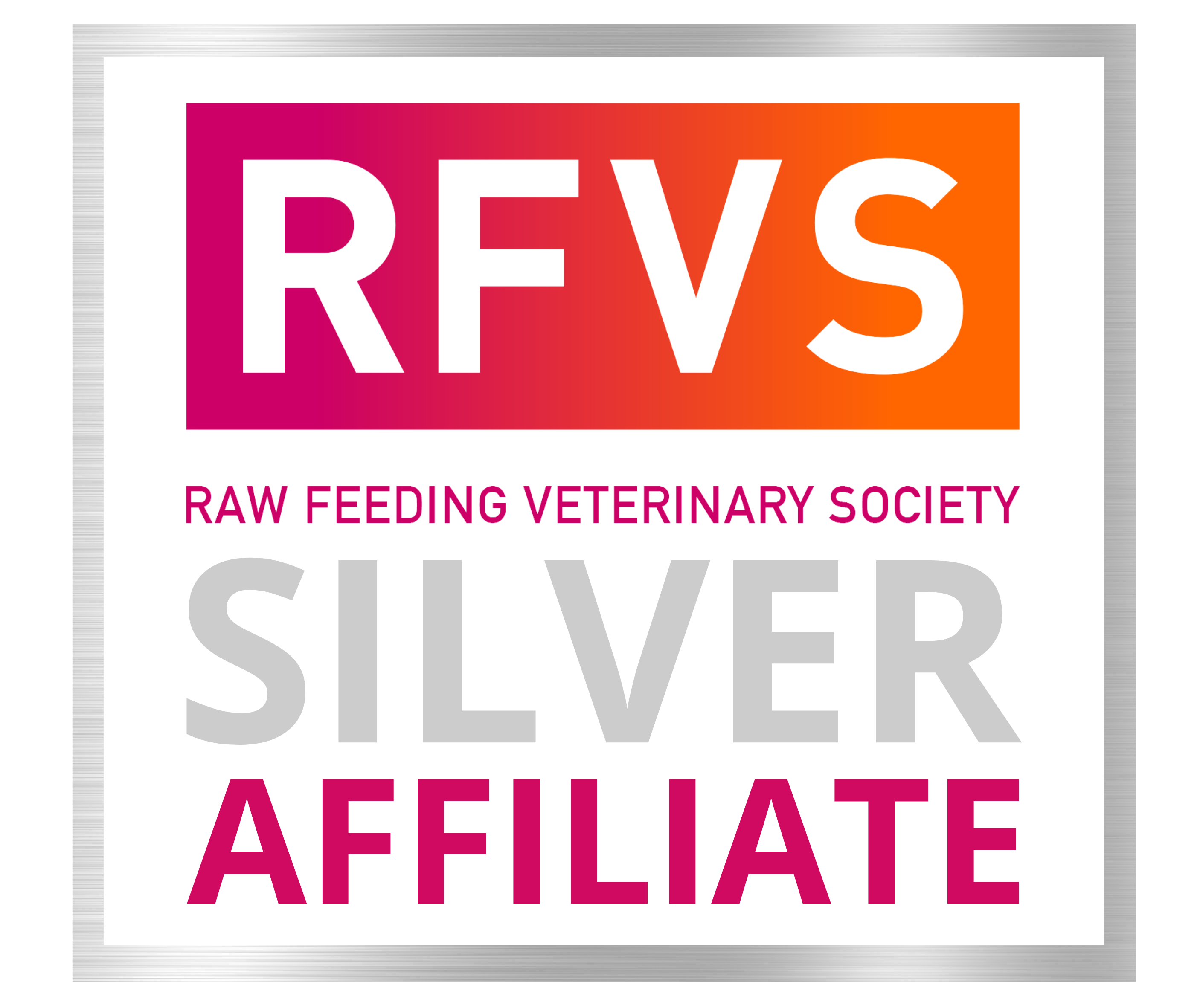Antibiotic Resistance
In July, 2021 The Guardian published an article on a study which explored the potential role of raw dog food in antibiotic resistance.
Raw Essentials has an amazing community of customers! We received multiple emails alerting us to the article. It is pretty special that so many of our customers care not just about their pet’s nutrition, but about the wider ramifications of their food choice.
What was the study about?
The study referred to in the article looked for the presence of antibiotic-resistant bacteria in a range of dog foods (raw, tinned, dry, treats) in Portugal. Many of the samples tested positive, however the raw samples tested positive at a higher rate than the other foods. There is a theoretical risk that the genes within the resistant bacteria found in some pet foods could impact on human health via gene transfer. Raw dog food has not been proven as a cause of antibiotic resistant illness in humans, however it is certainly a possibility, and as such must be taken seriously.
What is antibiotic resistance?
Since the discovery of penicillin in 1928, we have been very fortunate to be able to treat bacterial infections with antibiotics. This incredible invention has saved many millions of lives and dramatically increased lifespans. Antibiotic resistance first became a major issue in the 1950s. But new antibiotics were quickly identified as alternatives to ones that were no longer effective. And then resistance began to develop to the new drugs too.
Two factors have contributed to the antibiotic resistance crisis:
- The pharmaceutical companies continued to seek out new antibiotics to replace ineffective ones up until the 1980s, but since then research has largely dried up (due to challenging regulations, and reduced profits - drugs that cure disease are not nearly as profitable as drugs that merely manage chronic illness) and we no longer have new alternatives.
- In both human and veterinary medicine antibiotics have been misused and overused - creating selection pressures which allow resistant bacteria to flourish. These bacteria can spread their genes through inheritance, and through horizontal gene transfer (donating genes to a neighbour). Resistance can also occur through mutations. When antibiotics remove all the drug-sensitive bacteria, they leave a space to be filled up by drug-resistant bugs.
The statistics on antibiotic misuse and overuse in human medicine paint a very grim picture. Some studies have shown that more than half of all prescriptions from clinicians and intensive care practitioners are incorrect. In many countries antibiotics are available without any prescription at all.
In the veterinary realm, the major problem is in agriculture. Intensive farming systems (such as feedlots in the US) create hotbeds of bacterial contagion. Veterinarians prescribe prophylactic antibiotics to prevent the spread of disease on farms. They also prescribe them to act as growth promotants - antibiotics cause animals to gain weight rapidly, much like growth hormones. About 80% of all antibiotics sold in the US are for agricultural prophylaxis and growth promoting. Resistant bacteria is transferred to humans when they ingest the meat. Additionally, antibiotics cause ecological imbalances because they are excreted by farm animals, and enter the environment. They are also used as pesticides in horticulture.
Antibacterial products sold to people for hygiene and cleaning may also be impairing the development of robust natural immunity against many pathogens.
Currently, an estimated 700,000 people die each year from antibiotic-resistant illness. This is projected to rise to 10,000,000 over the next thirty years. After a brief hundred years of antibiotic protection, bacterial infections are once again a significant threat to our health.
Antibiotic resistance in New Zealand
We are extremely fortunate in New Zealand - antibiotic resistance is not nearly so significant here as it is overseas. Our history of extensive (outdoor) farming practises, and an awareness by veterinarians of the dangers of antibiotics have minimised the problem here. The graph below shows that we have one of the lowest rates of agricultural use of antibiotics in the world - and Portugal (where the dog food study was conducted) has one of the highest.
The Ministry for Primary Industries (MPI) and the New Zealand Veterinary Association (NZVA) monitor the global antibiotic resistance situation closely. They regulate veterinary and farming practises here specifically to protect our current status.
MPI have the following to say regarding the situation in New Zealand:
“antibiotic use in animals is not considered to be a significant contributor to the development of antibiotic resistance in human bacterial pathogens”
”No clinical cases have been reported where human pathogens have been found in people and the source of the resistance has been confirmed to have been transferred from resistant bacteria of another species in animals”
“the probability that a person in New Zealand will develop a disease caused by a human pathogen that is resistant to antibiotics due to transfer of resistance from an animal bacteria species appears low...To date the most common association with unresponsive cases is related to hospitals or intensive health care situations.”
Routine use of antibiotics in New Zealand agriculture is limited to those that are of least significance to human health.
How does Raw Essentials manage the risks?
Antibiotic resistance has been a problem for at least 70 years. Agricultural and medicinal overuse and misuse of antibiotics has caused the issue, however we can not rule out the possibility that raw-feeding dogs and cats play a very small role, at least in some parts of the world.
At Raw Essentials we source healthy wild products; and human-grade, extensively-farmed products. We procure and process these in strict accordance with MPI regulations, which have been designed to maintain very high standards of food safety. We provide advice for safe pet food handling in the home.
We are confident that the risk of AMR transfer from our food to humans is negligible, however we will continue to monitor our food chains closely, follow MPI advice, and adjust our practises when faced with new information.
References
https://www.sciencedirect.com/...
https://www.ncbi.nlm.nih.gov/pmc/articles/PMC4378521/
https://www.mpi.govt.nz/animals/veterinary-medicines-acvm/antimicrobial-resistance/

